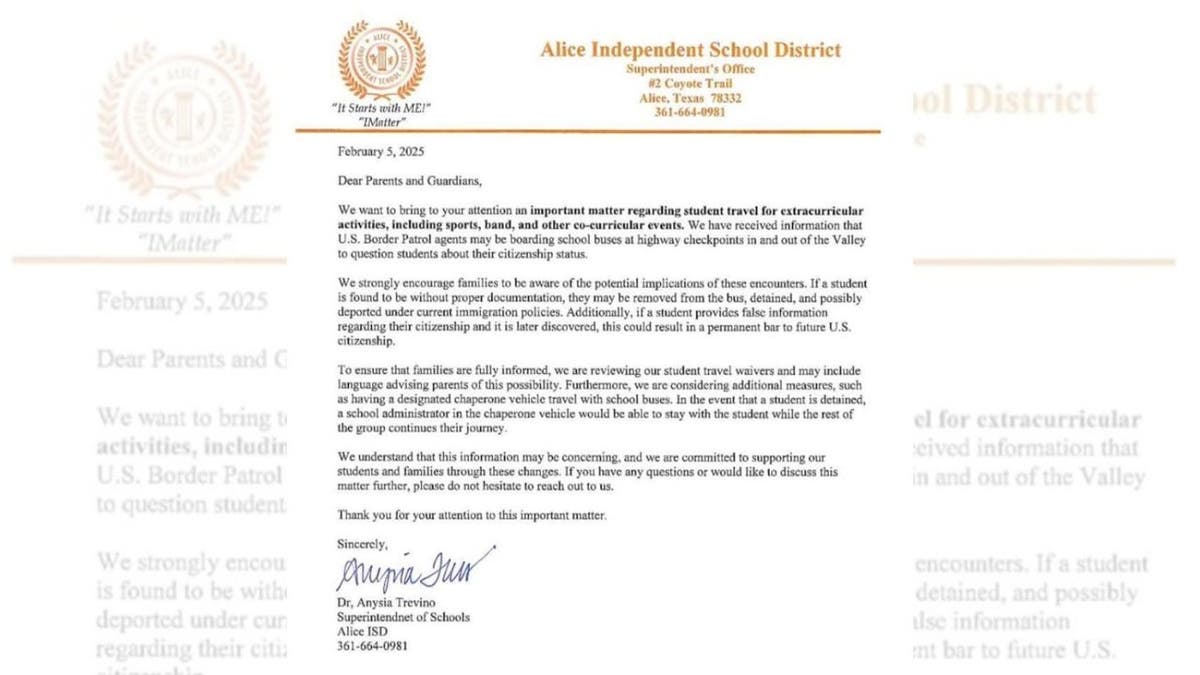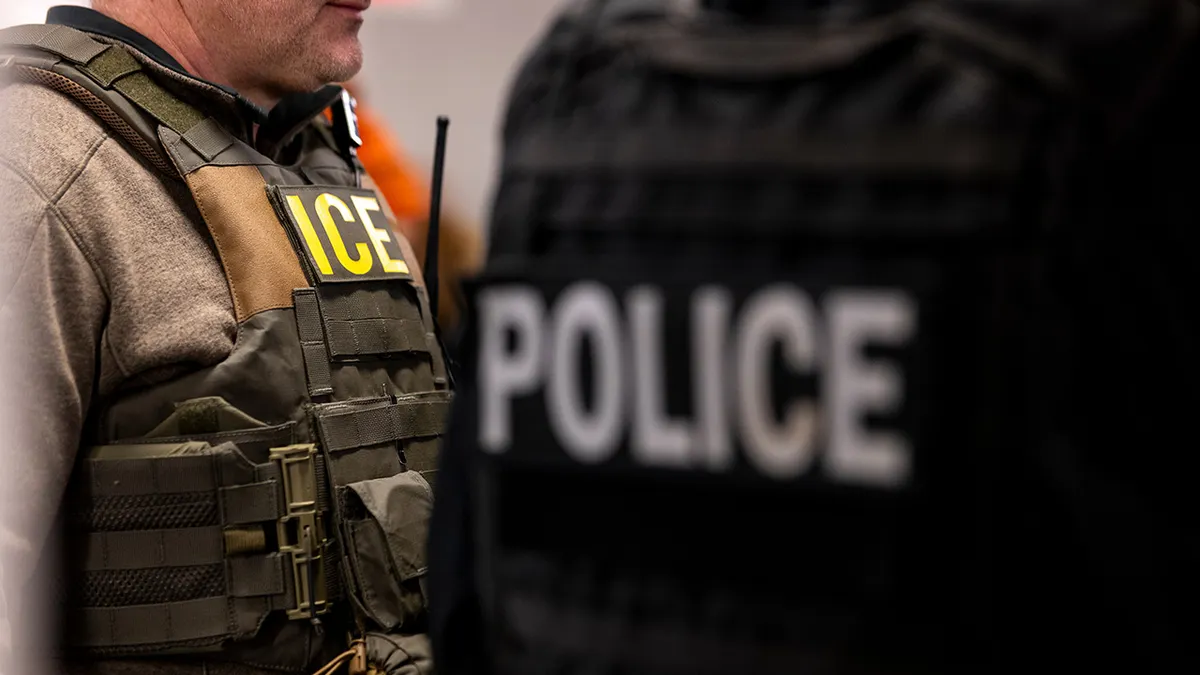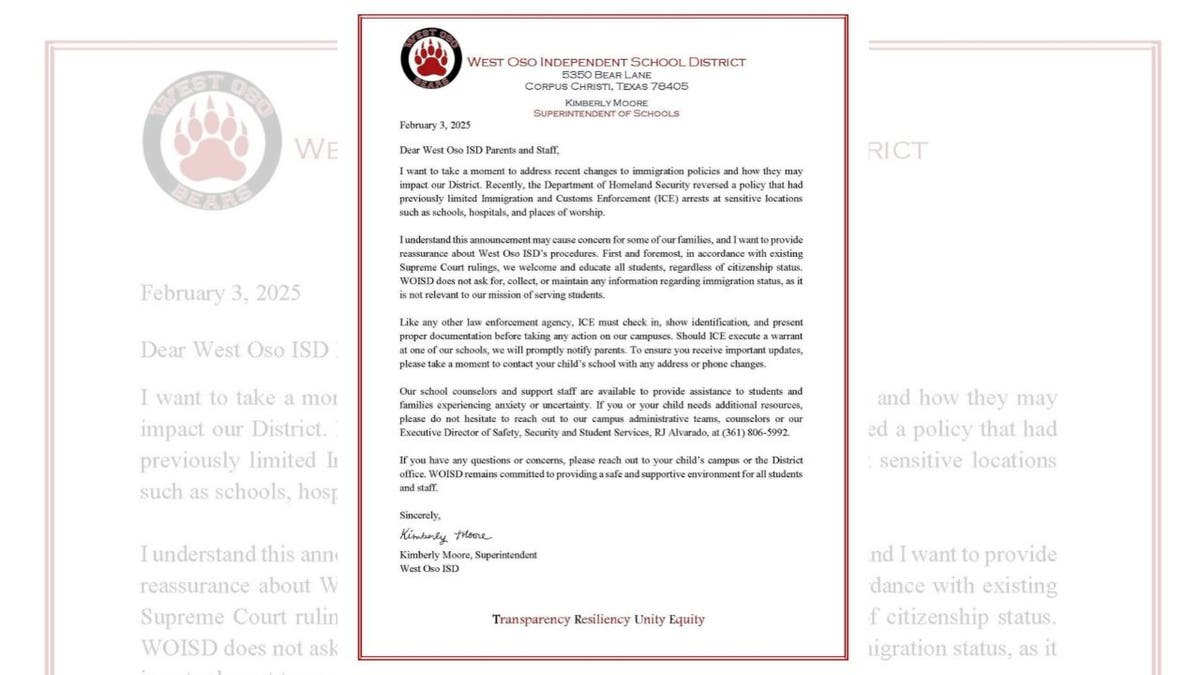A Texas school district recently issued a letter to parents, alerting them to the possibility of U.S. Border Patrol agents boarding school buses at highway checkpoints. The letter, penned by Alice Independent School District Superintendent Anysia Trevino, cautioned that agents might inquire about students' citizenship status, particularly during travel for extracurricular activities.
The letter detailed the potential consequences for students lacking proper documentation, including removal from the bus, detention, and potential deportation. It also emphasized that providing false information about citizenship could have long-term repercussions, potentially barring individuals from obtaining U.S. citizenship in the future. This aligns with federal immigration law, which stipulates that misrepresenting one's citizenship status can disqualify individuals from receiving green cards or citizenship.

Superintendent Trevino assured parents that the district is exploring ways to mitigate the impact of these potential checks. This includes revising student travel waivers to inform parents of the possibility and considering measures like having a chaperone vehicle accompany school buses. In case a student is detained, a school administrator in the chaperone vehicle would remain with the student.
The Alice Independent School District is not alone in addressing the implications of changing immigration policies. West Oso ISD also recently sent a similar letter to parents, outlining procedures and emphasizing that the district welcomes all students regardless of citizenship status. The letter clarified that West Oso ISD does not collect or maintain information about students' immigration status and that ICE agents must follow proper protocol before taking any action on school grounds.

These developments follow a January statement by a Department of Homeland Security (DHS) spokesperson, clarifying directives issued by Acting DHS Secretary Benjamine Huffman. These directives empower law enforcement to enforce immigration laws, even in previously considered “sensitive” locations like schools, hospitals, and places of worship. The DHS statement emphasized that this action enables law enforcement to apprehend criminals who have entered the country illegally and prevents them from using these locations as safe havens.


Comments(0)
Top Comments